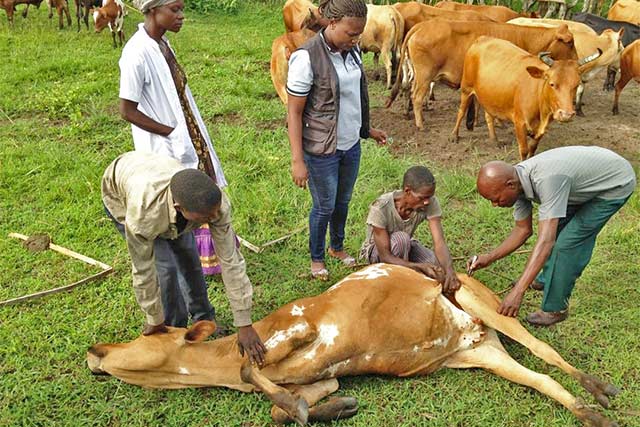The Federal Ministry of Agriculture and Rural Development and the Nigeria Customs Service on Friday alerted their respective officers about the outbreak of the deadly anthrax disease in neighbouring Niger Republic.
Alerting its veterinary officers, the FMARD described anthrax as a deadly zoonotic disease with a high rate of mortality in humans and livestock.
The Chief Veterinary Officer of the Federation, Oniya Alabi, said it had become important to strengthen surveillance systems across all entry points in border communities considering the mass movement of animals and products across the Niger Republic and Nigeria.
He appealed for adequate measures to prevent the incursion of the disease into Nigeria.
This came as the Nigeria Customs Service alerted its zonal, regional and other officers across the country about the outbreak of the disease in the Niger Republic.
The Comptroller, Enforcement, NCS, Victor Dimka, said the alert was necessary to ensure that the disease does not spread into Nigeria.
The alert notice from the NCS headquarters, dated December 12, 2019, was issued to all zonal coordinators, customs area controllers, comptrollers North-West, North-East, Marine Command, zonal commanders, headquarters strike force, among others.
In the alert to its officers, the NCS said, “The headquarters received a report which reveals that the Nigerien Ministry of Agriculture and Livestock had notified the World Organisation for Animal Health of an outbreak of Charcoal Anthrax disease, Bacterium Bacillus Anthracis variant, in sheep and cattle in the country.”
The service further explained that the transmission of the disease to humans occurs directly or indirectly from infected animals or due to occupational exposure to contaminated animal products.
It noted that given the supply of cattle and sheep from Niger to Nigeria, the comptroller-general of the service had directed that there be an urgent need to place additional precautionary measures to prevent the spread of the disease into Nigeria through the country’s land borders.


